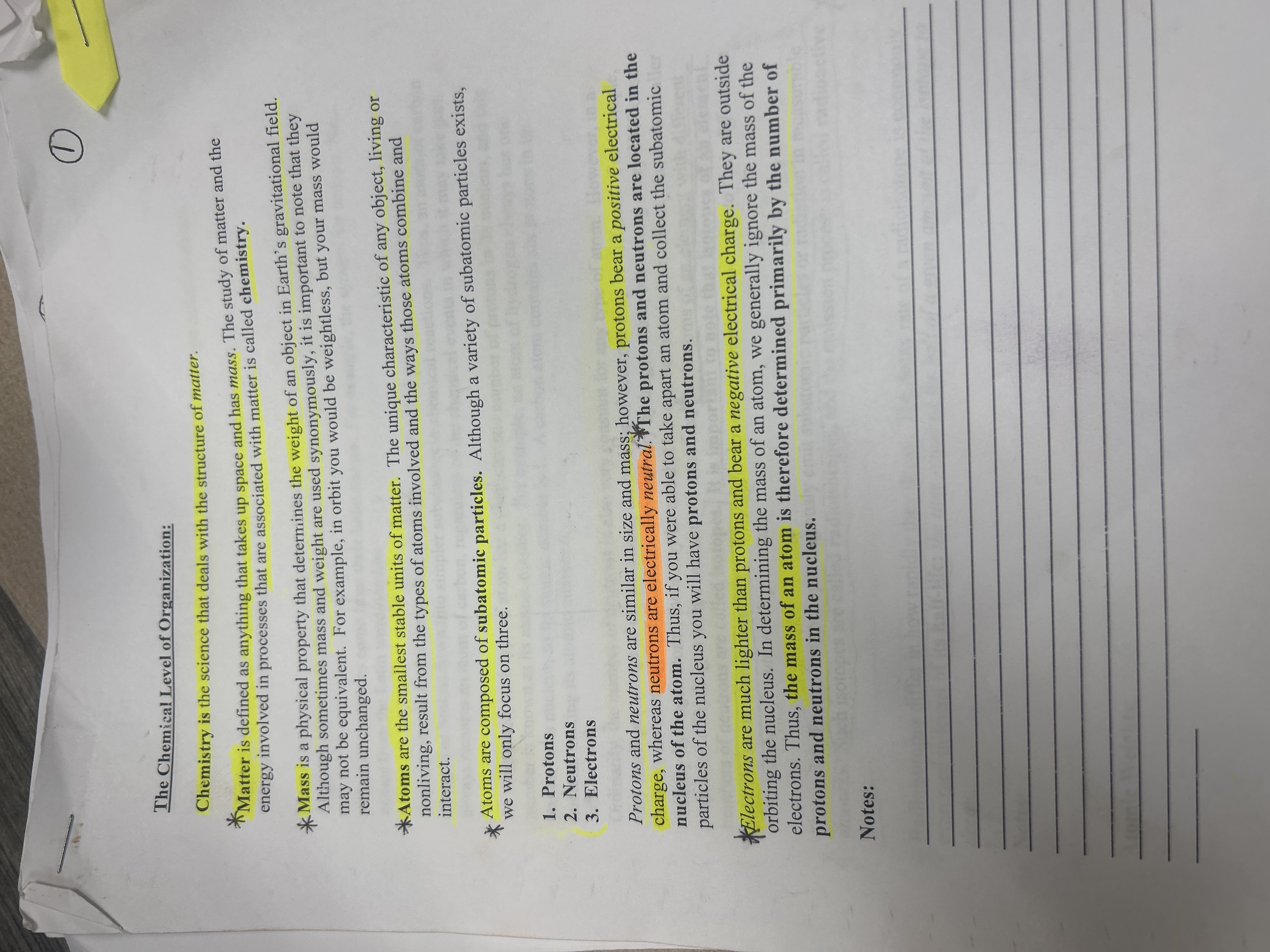What are the properties and characteristics of protons, neutrons, and electrons?

Understand the Problem
The question appears to be discussing the basic structure of matter, specifically focusing on atoms and their subatomic particles: protons, neutrons, and electrons. It outlines their characteristics, such as charge and mass, and explains how they contribute to the overall mass of an atom.
Answer
Protons: positive charge, neutrons: no charge, electrons: negative charge.
Protons are positively charged, neutrons have no charge, and electrons are negatively charged. Protons and neutrons are located in the nucleus and have similar mass, while electrons orbit the nucleus and have much less mass.
Answer for screen readers
Protons are positively charged, neutrons have no charge, and electrons are negatively charged. Protons and neutrons are located in the nucleus and have similar mass, while electrons orbit the nucleus and have much less mass.
More Information
Protons and neutrons determine the atom's mass, while electrons determine its charge and reactivity. Understanding their properties is crucial in fields like chemistry and physics.
Tips
A common mistake is confusing the charge or location of these particles. Remember: protons and neutrons are in the nucleus; electrons orbit outside.
Sources
- The web page with info on - ACS Chemistry - acs.org
- 4.4: The Properties of Protons, Neutrons, and Electrons - Chemistry LibreTexts - chem.libretexts.org
- 2.1 Electrons, Protons, Neutrons, and Atoms – Physical Geology - opentextbc.ca
AI-generated content may contain errors. Please verify critical information